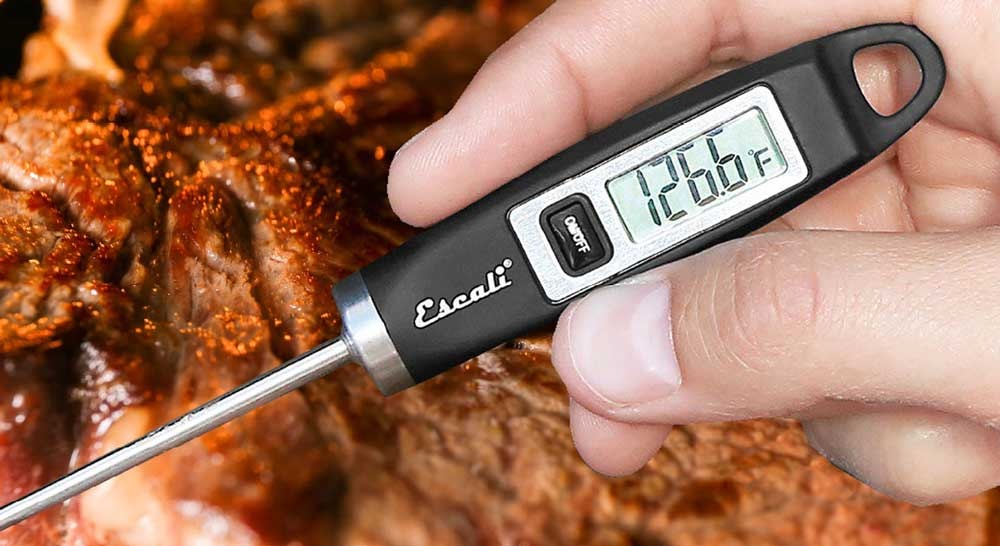Cleaning your meat thermometer is critical for safety and accuracy. A clean thermometer ensures that youre getting an accurate reading and that youre not introducing any harmful bacteria into your food. Regular cleaning also prolongs the life of your thermometer.
Tools Youll Need

Essential Cleaning Tools
To clean your meat thermometer effectively, you will need the following tools:
- Warm water
- Mild dish soap
- Soft cloth or sponge
- Rubbing alcohol
- Sterilizing wipes
- Small brush (optional for hard-to-reach areas)
Preparing to Clean Your Thermometer
Before you start cleaning, make sure your thermometer is turned off and has cooled down to avoid any burns. This step is crucial, especially for digital thermometers, to protect the electronic components.
Step-by-Step Guide to Cleaning Your Meat Thermometer

Step 1: Remove Any Loose Debris
Begin by wiping off any food particles or grease using a soft cloth or sponge. This makes the actual cleaning process more effective.

Step 2: Wash with Soap and Water
Wash your meat thermometer under warm water using mild dish soap. Use a soft brush or cloth to scrub it gently. Avoid submerging the digital part in water.
Step 3: Sanitize with Rubbing Alcohol
Dab some rubbing alcohol onto a sterilizing wipe and rub it over the probe to kill any bacteria. This is an essential step, especially when dealing with raw meat.
Step 4: Dry Thoroughly
Ensure your thermometer is completely dry before storing it. Use a clean, dry cloth to wipe it down. Moisture can lead to rust or damage to the electronic components.
Cleaning Digital vs Analog Thermometers
While both digital and analog meat thermometers require regular cleaning, the methods differ slightly. Digital thermometers have electronic parts that should not be submerged in water, whereas analog thermometers can usually be fully immersed.
Common Mistakes to Avoid
People often make the following mistakes when cleaning their meat thermometers:
- Submerging the digital thermometer in water
- Using harsh chemicals
- Neglecting the handle and digital display area
- Forgetting to dry thoroughly
How Often Should You Clean Your Meat Thermometer
Ideally, you should clean your meat thermometer after every use. This is especially crucial if you use it for different types of meat to prevent cross-contamination.
Alternative Cleaning Methods
Using Sterilizing Wipes
If you’re in a hurry, sterilizing wipes can be an effective quick-fix. Ensure to wipe down the entire thermometer, including the handle and any buttons.
Boiling Water
For non-digital thermometers, boiling water can be an effective method for sanitization. Immerse the probe in boiling water for a few minutes to kill any bacteria.
Storing Your Thermometer After Cleaning
Proper storage of your meat thermometer is essential to keep it clean and in good working condition. Store it in a protective case or a clean, dry drawer away from other kitchen tools.
Maintaining the Accuracy of Your Thermometer
Regular calibration and proper cleaning are key to maintaining the accuracy of your meat thermometer. Check the manufacturers guidelines for calibration instructions.
FAQs
Can I clean my digital meat thermometer in the dishwasher?
No, you should never put a digital meat thermometer in the dishwasher as it can damage the electronic components.
What if I dont have rubbing alcohol?
You can use a mixture of water and vinegar as a substitute for rubbing alcohol to sanitize your thermometer.
How can I tell if my thermometer is clean enough?
Your thermometer should be free of any food particles, grease, or visible stains. Additionally, it should smell clean, not like previous foods.
Conclusion
Cleaning your meat thermometer after each use is a small step that can make a big difference in ensuring safe and delicious meals. By following these easy steps and avoiding common mistakes, you can keep your meat thermometer in excellent condition for years to come.
For more tips on cooking and kitchen hygiene, you can visit how to take meat temperature.
Check out some other interesting topics such as season iron griddle , microwave chicken , and cook on griddle.
As an Amazon Associate, I earn from qualifying purchases.









